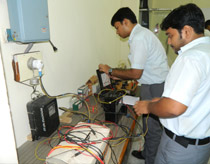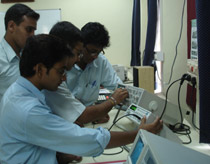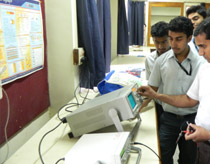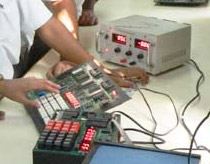At present, growth of Industry is rapidly increasing in all sectors in our country and the same is affecting all streams of engineering with one of the major demands in supplying engineers to the field of Electronics, as well as in the Telecommunication sectors, which are rapidly changing as per utility demands. So this course is beneficial in the engineering education in present socio-economical & Technological scenario.
New generation electronics engineers need to be competent in dealing with both analog & digital systems, communication engineering, microprocessors & microcontroller, industrial electronics, satellite communication & networking.

Electronic engineering as a profession sprang from technological improvements in the telegraph industry in the late 19th century and the radio and the telephone industries in the early 20th century. People were attracted to radio by the technical fascination it inspired, first in receiving and then in transmitting.

Electronic engineering (also called electronics and communications engineering) is an electrical engineering discipline which utilizes nonlinear and active electrical components (such as semiconductor devices, especially transistors and diodes) to design electronic circuits, devices, integrated circuits and their systems.

The students of the department are provided with rigorous training along with theoretical background in Analog & Digital electronics, Optical fibre, consumer electronics, Microwave & antenna, Automation and Tele-communication.

In the field of electronic engineering, engineers design and test circuits that use the electromagnetic properties of electrical components such as resistors, capacitors, inductors, diodes and transistors to achieve a particular functionality.
